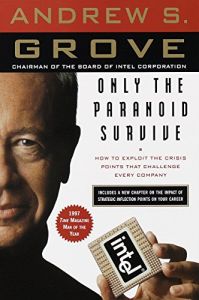Join getAbstract to access the summary!

Join getAbstract to access the summary!
Andrew S. Grove
Only the Paranoid Survive
How to Exploit the Crisis Points that Challenge Every Company
Currency, 1999
What's inside?
When your product no longer fits the market, that's a strategic inflection point. Will you save your firm or sabotage it?
Recommendation
Part business memoir and part corporate-strategy guide, Andrew S. Grove's insightful book gives the reader an inside look at how microprocessor giant Intel prospered in one of the most competitive industries on earth. Grove writes candidly about the moments when he had to admit his company was simply failing to keep up with the competition. His response: to undertake drastic changes in his organization. Grove writes about what it is like to lead a company out of the wilderness of change and into safer, more secure markets. He also introduces useful tools and ideas that will help the next generation of corporate scions stay ahead in times of rapid change. Face it: Someone, somewhere is plotting right now how to outperform your company in the marketplace. This is the right book book for those who are paranoid – and for those who ought to be.
Summary
About the Author
Andrew S. Grove is the former CEO and current chairman of the board of Intel. He is a Hungarian emigrant, having come to the U.S. in 1956. In 1997, he was named Time magazine's "Man of the Year." Grove teaches at the Stanford University Graduate School of Business.



















Comment on this summary